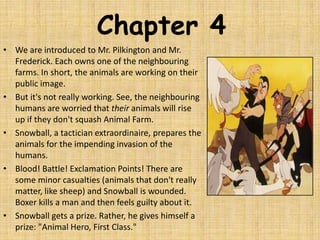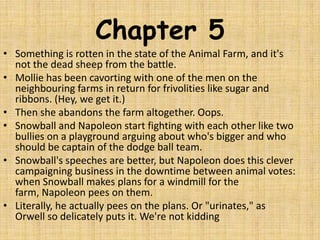Old Major the boar gives a speech inspiring the animals of Manor Farm to rebel against their human farmer Mr. Jones. The animals successfully drive Mr. Jones off the farm and rename it Animal Farm, establishing Seven Commandments of animalism. Over time, the pigs Napoleon and Snowball take control of the farm and begin rewriting the rules to benefit themselves, eventually becoming indistinguishable from humans as inequality grows.



















